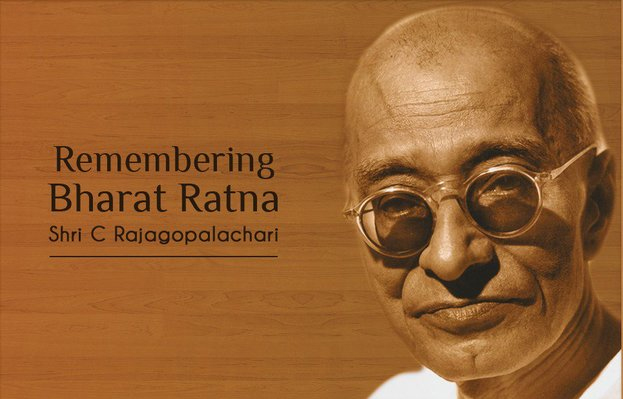Indian History
C Rajagopalachari
- 10 Dec 2021
- 5 min read
Why in News
Recently, C. Rajagopalachari is remembered on his 143rd birth anniversary.
- He is remembered for his contributions to the freedom struggle, administrative and intellectual prowess.

Key Points
- About:
- Chakravarti Rajagopalachari, popularly known as Rajaji, was born on December 10th in 1878.
- He studied law from the Presidency College in Madras (now Chennai), and began practice in Salem in the year 1900.
- In 1916, he formed the Tamil Scientific Terms Society, an organisation that translated scientific terms of chemistry, physics, mathematics, astronomy and biology into simple Tamil words.
- He became the chairperson of the municipality of Salem in 1917 and served there for two years.
- In 1955, he was honoured with India’s highest civilian award Bharat Ratna.
- He died on 25th December, 1972.
- Political Career:
- Pre-independence:
- He joined the Indian National Congress and acted as a legal advisor.
- He defended Indian Independence activist, P. Varadarajulu Naidu against charges of sedition in 1917.
- He was elected as the first premier of the Madras Presidency in 1937.
- In 1939, Rajagopalachari took a step to abolish untouchability and caste prejudice and issued the Madras Temple Entry Authorisation and Indemnity Act.
- After the Madras Temple Entry Authorisation Dalits were allowed to enter inside temples.
- At the time of Partition, he was appointed as the Governor of West Bengal.
- In 1947, during the absence of Lord Mountbatten, the last British viceroy and independent India’s first Governor General, Rajagopalachari was temporarily chosen to hold the office.
- Therefore he was the last governor general of India.
- Post-independence:
- Rajagopalachari took over as the chief minister of Madras in April 1952.
- During his tenure as the chief minister of Madras, he actively participated in reforming the education system and bringing changes in the society.
- He also made Hindi a compulsory language in Tamil schools.
- His move led to protests against him, following which Rajagopalachari resigned as the CM.
- He was a social conservative but advocated a free market economy.
- He wanted to reintroduce the Varna system into society.
- He believed in the significance of religion for society.
- Rajagopalachari was made Home Affairs Minister after the death of Sardar Patel in 1950.
- In 1959, he resigned from the Indian National Congress and founded the Swatantra Party.
- Pre-independence:
- Role in Freedom Struggle:
- Non-Cooperation Movement: He met Mahatma Gandhi for the first time in 1919 in Madras (now Chennai) and participated in Gandhi’s Non-Cooperation Movement.
- He was also jailed for two years in Vellore in 1920.
- After his release, he opened his own ashram to promote Gandhi’s principles of Hindu-Muslim harmony and the abolition of untouchability.
- He was also a proponent of khadi.
- Vaikom Satyagraha: He was also involved in the Vaikom Satyagraha movement against untouchability
- Dandi March: When Gandhi led the Dandi March to break the salt law in 1930, Rajagopalachari carried out a similar march at Vedaranyam in the Madras Presidency.
- He also became the editor of Gandhi’s newspaper, Young India.
- Quit India Movement: During the Quit India Movement, Rajagopalachari opposed Gandhi.
- He was of the view that the British were going to leave the country eventually, so launching another Satyagraha was not a good decision.
- Non-Cooperation Movement: He met Mahatma Gandhi for the first time in 1919 in Madras (now Chennai) and participated in Gandhi’s Non-Cooperation Movement.
- Literary Contributions:
- He wrote a Tamil translation of the Ramayana, which was later published as Chakravarthi Thirumagan.
- The book won the Sahitya Akademi Award in Tamil language in 1958.
- He wrote a Tamil translation of the Ramayana, which was later published as Chakravarthi Thirumagan.





-min.jpg)